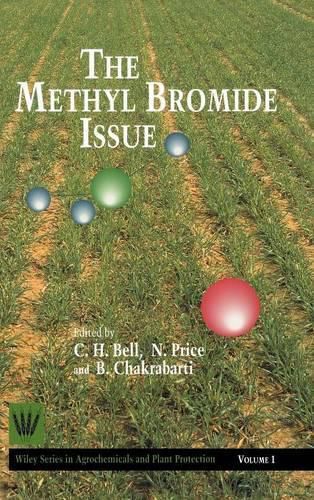Readings Newsletter
Become a Readings Member to make your shopping experience even easier.
Sign in or sign up for free!
You’re not far away from qualifying for FREE standard shipping within Australia
You’ve qualified for FREE standard shipping within Australia
The cart is loading…






Written by international experts in the field, this book sets out the scientific arguments for and against the use of methyl bromide which is both naturally occurring and also a man-made product believed to have played a significant role in the depletion of the ozone layer. Methyl bromide is a widely used fumigant in agriculture, horticulture and the preservation of structural materials. The fate of this natural and man-made chemical is the focus of much fierce debate with scientific, political, social, environmental and economic arguments for and against the production and use of this chemial. This book does not set out to convince the reader of a predetermined viewpoint. Its purpose is to set out the scientific debate covering the major relevant fields including agriculture, atmospheric chemistry, oceanography, environmental sciences, chemistry, biology and toxicology, as well as two chapters on potential alternatives to methyl bromide. The authors who have contributed to this book are all experts who have played pivotal roles in the international debate on methyl bromide.
$9.00 standard shipping within Australia
FREE standard shipping within Australia for orders over $100.00
Express & International shipping calculated at checkout
Written by international experts in the field, this book sets out the scientific arguments for and against the use of methyl bromide which is both naturally occurring and also a man-made product believed to have played a significant role in the depletion of the ozone layer. Methyl bromide is a widely used fumigant in agriculture, horticulture and the preservation of structural materials. The fate of this natural and man-made chemical is the focus of much fierce debate with scientific, political, social, environmental and economic arguments for and against the production and use of this chemial. This book does not set out to convince the reader of a predetermined viewpoint. Its purpose is to set out the scientific debate covering the major relevant fields including agriculture, atmospheric chemistry, oceanography, environmental sciences, chemistry, biology and toxicology, as well as two chapters on potential alternatives to methyl bromide. The authors who have contributed to this book are all experts who have played pivotal roles in the international debate on methyl bromide.